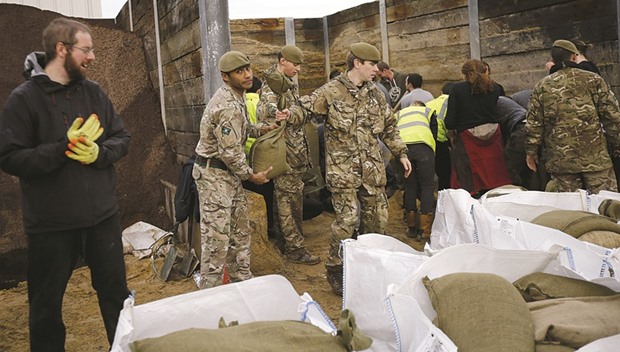It is a neat calculation: the first estimates of the end-of-year flood damage in the north of England suggested a bill of a little over £1bn. Or, as sections of the rightwing press maintained, pretty much the same as the UK spends on help for the world’s “20 most corrupt countries”. Cue indignation from the diehard opponents of the 0.7% of GDP that is currently earmarked for overseas aid.
And if you are among those whose homes have been inundated over Christmas, and you’ve learned that requests for improved flood defences were turned down by Westminster, you might well agree. The money is there, you would say; it is just a question of redirecting it from maladministered projects and ministerial Mercedes abroad to nice, clean, value-for-money schemes here. Charity begins - does it not? - at home?
Well, yes - and no. The proportion of GDP that the UK has earmarked for foreign aid spending may be higher than that allocated by many other countries, but it is still tiny in real terms. If, as was reported towards the end of the last financial year, ministers and civil servants were casting around for worthy recipients because they faced the dire prospect - in departmental terms - of under-spending, then that reflects not the lavishness of the budget, but a failure of organisation and imagination on their part.
This year, at least, there should be no such difficulty: the cost of what is said to have been the biggest flow of people since the second World War should absorb any surplus there might be in the UK aid budget. Whether the money helps to fund camps in the affected regions, or the cost of processing, accommodating and integrating all the refugees reaching Europe, this seems an entirely valid use of our aid budget - it being a reasonable combination of altruism and self-interest.
There is a legitimate discussion to be had about the long-term value of foreign aid generally - how far it prevents countries developing their own resources and reforming themselves; whether it actually fosters dependency and corruption. The distinction sometimes made between emergency relief (essential) and long-term assistance (dubious) has merit and could lead to a beneficial change of approach.
But the argument that the UK’s overseas aid budget should be raided to repair flood damage, whether in Cumbria, or Yorkshire, or last year in the West Country, makes no sense. Even if the costs reach £5bn, as has been suggested, it is a minute fraction of the estimated £750bn public spending tally for 2015, and it will be shared, as it should be in any developed country, with commercial insurers.
The Environment Agency may be right, that a complete rethinking of flood defences is needed. How about starting with the sub-stations built on vulnerable sites, and the housebuilding (still, disgracefully) allowed on flood plains? It also makes sense to redirect some resources - but not from the aid budget.
One of the successes of the emergency flood operation - in practical and PR terms - has been the involvement of the army. The numbers are not huge: 300 troops are there, another 200 have been sent, and 1,000 are on standby. But you can see the confidence they inspire in those being rescued; the order they bring to some of the relief efforts; the sense they generate that something is being done. As at London 2012, when the army was sent in to make up for the spectacular failure of Olympic security “outsourcing” to G4S, people like to see the army helping out on the home front.
In the aftermath of the Iraq debacle, there was concern among the top brass about the breakdown of the “military covenant”: the presumed solidarity between civilians and the military. More frequent deployment of the army in domestic emergencies might not satisfy those who joined primarily to fight, but it can do wonders for civilian-military relations and could encourage recruitment to the reserve.
The army’s contribution this Christmas also raises another question: might the UK today benefit from a highly trained civilian Home Guard, part-professional, part-volunteer? Defence chiefs will no doubt say that the military is overstretched as it is. But the answer here should be obvious: less Syria; more Kendal and Hebden Bridge. - Guardian News & Media

Soldiers and volunteers fill sand bags to assist with flood relief in York, in northern England, yesterday.
